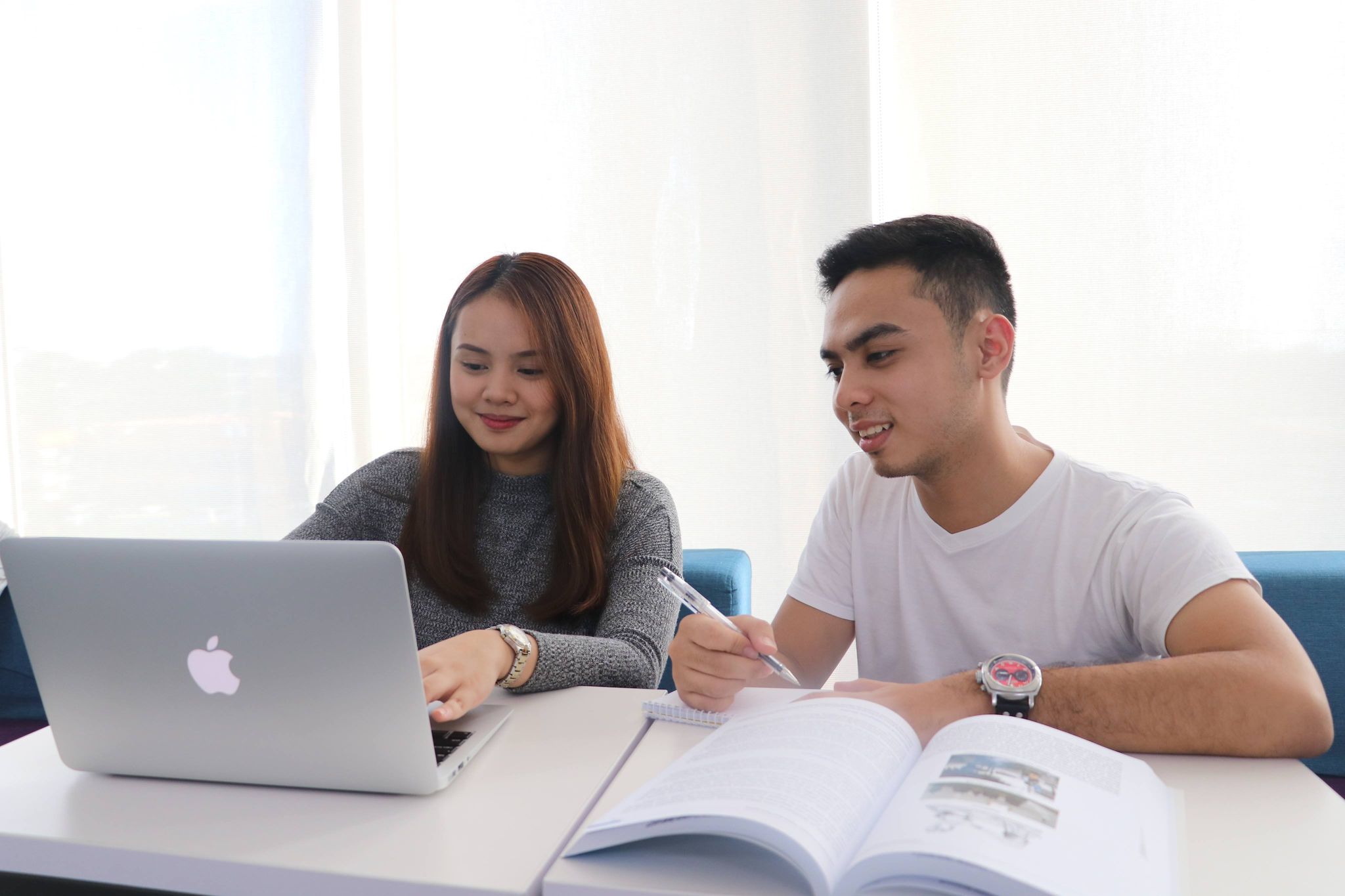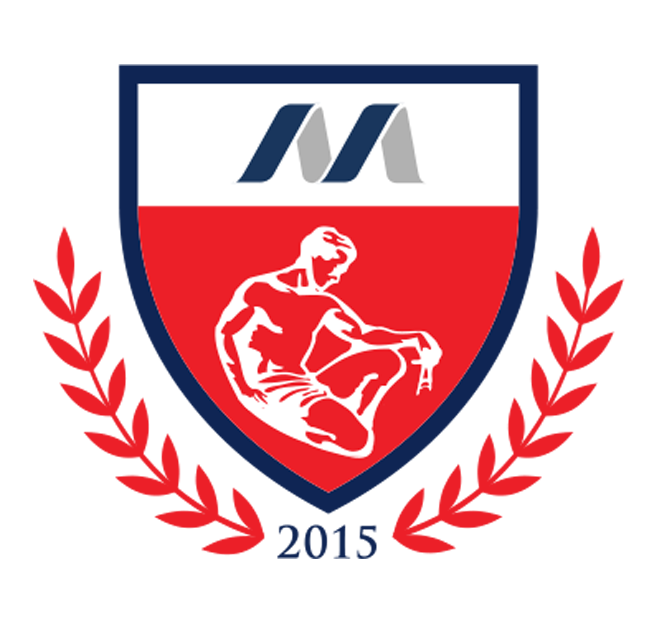Bachelor of Science in Psychology

About Psychology
The Bachelor of Science in Psychology degree offers numerous career opportunities in fields such as clinical psychology, social work, and law enforcement. The program provides a comprehensive education, covering topics like human behavior, mental processes, and general education courses like math and philosophy. It aims to foster critical thinking and creativity to help students contribute to society and promote well-being. The program employs practical and theoretical methods, emphasizing the application of psychological science in different settings to develop students’ skills in both practice and research.
Program Educational Objectives
The Bachelor of Science in Psychology program provides a comprehensive curriculum which aims to:
- Direct students towards a logical comprehension of describing, explaining, and predicting human behavior.
- Give privileges for experiences in the specialized fields of psychological assessment, research work, and community immersion.
- Equip students with fundamental knowledge and skills bounded by the significant areas of Psychology, which may prepare them to be globally competent in the emerging field of professional Psychology.
- Promote a rich learning environment for students that will prepare them for promising careers in the field of professional psychology.
Student Outcomes
At the end of the program, graduates of the BS Psychology Program will be able to:
- Describe the major concepts, language, and major theories of the discipline to account for psychological phenomena;
- Apply psychological concepts, methods, and principles in the analysis of human behavior and mental processes;
- Evaluate the phenomena of human behavior guided by knowledge in empirical findings and psychological evidence.
- Demonstrate competencies in the application of skills for Psychological Assessment such as effective communication, clinical case interview, and writing clinical case report;
- Explain further the major historical timelines in the discipline and perspectives of psychology
- Practice ethical behavior in all aspects of the science, research, and practice of psychology;
- Demonstrate competencies in the application of skills for psychological assessment such as effective communication, clinical case interview, and writing a clinical case report.
Career Opportunities

PSYCHOLOGIST

PSYCHOMETRICIAN

GUIDANCE COUNSELOR

EDUCATOR / PROFESSOR

RESEARCHER

THERAPIST

HUMAN RESOURCE PERSONNEL

CAN PROCEED TO LAW AND MEDICAL SCHOOL

ACADEME AND GRADUATE STUDIES
College of Arts and Science Course Offerings
2021-2022 Psychology
This introductory course covers the broad conceptual and empirical foundations of psychology. This course deals with the fundamental concepts and principles in studying human behavior and its underlying facets, which will assist in learning other specialized courses in psychology. It further examines the basic psychological concepts, theories, and/or principles, such as cognition, emotion, sensation, perception, motivation, memory, learning, and others. At the end of the course, the students will have a comprehensive overview of the biopsychosocial model in the scientific study of human behavior.
Course unit(s): 3.0 units
Credit hour(s): 4.5 hours (lec)
Prerequisite(s): None
Co-requisite(s): None
This course presents the fundamentals of psychological statistics and its utility for describing, analyzing, and interpreting psychological data. It focuses on the different statistical tools which can be utilized in psychological testing, psychological assessments, and research.
Course unit(s): 3.0 units (lec) 2.0 units (lab)
Credit hour(s): 4.5 hours (lec) 9 hours (lab)
Prerequisite(s): None
Co-requisite(s): None
This course is specialized in the study of human development throughout the life span in the different areas of physical, social, cognitive, emotional, and moral functioning. The course will also discuss the major developmental theories and studies that will expand one’s understanding of the growth and changes of human development in this course are centered on the Filipino culture.
Course unit(s): 3.0 units
Credit hour(s): 4.5 hours (lec)
Prerequisite(s): PSY 101
Co-requisite(s): None
This course discusses the major theories of personality. The course is designed to understand and examine theoretical and contextual tenets involved in the scientific study of personality formation and dynamics. The course provides a basic orientation on the different theories and concepts of personality from different theorists in the field of psychology. At the end of the course, students are expected to be able to understand and contextualize the theoretical paradigms of personality theories in human behavior, given their strengths and limitations.
Course unit(s): 3.0 units
Credit hour(s): 4.5 hours (lec)
This course is specialized in the understanding of different cognitive models that relates to the cognitive development of the human person. It further analyzes the functions and processes involved in information processing, learning, metacognition, language use, memory, perception, problem solving, creativity, and reasoning. The course also thoroughly investigates the biopsychosocial factors that affect a person’s cognitive abilities including sensation, perception, attention, memory and representation, language, and thinking across life span and environment.
Course unit(s): 3.0 units
Credit hour(s): 4.5 hours (lec)
Prerequisite(s): PSY 101
Co-requisite(s): None
The course fundamentally focuses on the impact of culture on human behavior. It strives to discuss the origins and highlights of Filipino psychology or “Sikolohiyang Pilipino.” The course examines social situations in the Philippine context that reflect the similarities and differences of people’s values, beliefs, and personalities. It critically evaluates findings on the formation of values, personality, emotional expressions, communication, mental health and well-being, family and relationships, leadership, behavior in groups, and the social environment of Asian culture in contrast to European and Western cultures.
Course unit(s): 3.0 units
Credit hour(s): 4.5 hours (lec)
Prerequisite(s): PSY 101
Co-requisite(s): None
This course is an introduction to the experimental methods of conducting psychological research in a controlled environment. It provides the students the necessary knowledge and skills in designing and conducting experimental research like between and within-subjects experiments. The course will direct students in the collection and analysis of research data as well as writing the final research report. Moreover, the course is organized to train students in the application of experimental psychology in the field of research.
Course unit(s): 3.0 units (lec) 2.0 units (lab)
Credit hour(s): 4.5 hours (lec) 9 hours (lab)
Prerequisite(s): PSY 101, PSY 102, PSY 102 L
Co-requisite(s): None
This course specializes in the neural mechanisms of perception and behavior and the physiological development of the brain in the human person. It covers various topics in the field of neuroscience like sensory and motor systems, parts and functions of the nervous system, the biopsychology of motivation, cognition, and emotion. The course further discusses the effects of different psychoactive drugs on the brain and the risks of using illicit drugs.
Course unit(s): 3.0 units
Credit hour(s): 4.5 hours (lec)
Prerequisite(s): PSY 101
Co-requisite(s): None
This course focuses on the scientific study of human social behavior, which relates to how and why people think, feel, behave, and relate to one another in different social situations. The course also strives to understand the major theories, concepts, and empirical findings in the field of social psychology. Furthermore, it critically examines different social phenomena constructed within a social context and influenced by actual or imagined interactions with other people.
Course unit(s): 3.0 units
Credit hour(s): 4.5 hours (lec)
Prerequisite(s): PSY 114
Co-requisite(s): None
This course covers the principles, methods, and uses of different psychometric tools in psychological testing and assessment. It examines the concepts, types, classifications, purposes, and processes involved in conducting psychological assessments such as item analysis, scoring, reliability, validity, test construction, etc. The course orients students on administering, scoring, and interpreting objective cognitive and affective testing tools used in various applied fields of psychology. Moreover, the course strives to recognize and apply different ethical considerations in the practice of psychological testing and assessment.
Course unit(s): 3.0 units (lec) 2.0 units (lab)
Credit hour(s): 4.5 hours (lec) 9 hours (lab)
Prerequisite(s): PSY 111
Co-requisite(s): None
This course focuses on the study of abnormal patterns of human behavior along with its diagnostic features, classifications, premorbidity, and risk factors. The course also provides an introduction to the nature, causes, and possible interventions of different psychological disorders in a human person. At the end of the course, the students are expected to be skilled with the nomenclature, classifications, and interventions for the different mental disorders. The students are also expected to be well-trained in creating a psychological report.
Course unit(s): 4.0 units
Credit hour(s): 4.5 hours (lec)
Prerequisite(s): PSY 111
Co-requisite(s): None
This course provides an overview of psychological concepts, theories, and research findings for effective human interactions and performance in the industrial and organizational workplace.
Course unit(s): 3.0 units
Credit hour(s): 4.5 hours (lec)
Prerequisite(s): PSY 118
Co-requisite(s): None
This course aims to provide students with a basic understanding of the nature, scope, and techniques used in the field of clinical psychology, including approaches in the assessment and interventions in various psychological disorders. The course also discusses the roles, functions, and ethical considerations involved in the practice of the profession. Moreover, this course will orient students to the basic knowledge and competencies required in the clinical profession.
Course unit(s): 3.0 units
Credit hour(s): 4.5 hours (lec)
Prerequisite(s): PSY 118
Co-requisite(s): None
This course provides an overview of the impact of disasters on individuals, families, and communities, such as natural calamities and trauma-related incidences. Students will be introduced to various psychosocial support training and seminars like disaster preparedness, crisis interventions, and psychological first aid. Furthermore, the course will provide students a deeper understanding of the impact of disasters on mental health and psychologically prepare them for future crises.
Course unit(s): 3.0 units
Credit hour(s): 4.5 hours (lec)
Prerequisite(s): PSY 101
Co-requisite(s): None
This course is designed to understand and evaluate children who are set apart from others due to either an advantage or disadvantage in terms of their physical, mental and emotional conditions. The course further discusses the etiological factors, characteristics of each condition, assessment procedures, and intervention approaches applicable for children’s mental and psychosocial development. Furthermore, students will be oriented on the rights and privileges of Filipinos with special needs shall also be discussed as embodied in the Persons with Disabilities Act of the Philippines (RA 9442).
Course unit(s): 3.0 units
Credit hour(s): 4.5 hours (lec)
Prerequisite(s): PSY 101
Co-requisite(s): None
This course focuses on the functions of human resources in an organization. The course further discusses theories and principles applied to the industrial and corporate setting. It also strives to equip students with the knowledge and skills required in performing job interviews, profiling, recruitment, employee training and testing, screening, assessment of promotion/termination, management of employee compensation/benefits, employee team building, and workforce management. By the end of the course, students should be able to assess job descriptions and competencies and be oriented to workplace ethics and different approaches to the training and development of employees.
Course unit(s): 3.0 units
Credit hour(s): 4.5 hours (lec)
Prerequisite(s): PSY 101, PSY 119
Co-requisite(s): None
This course will immerse and expose students to the different workplace settings in line with the field of psychology with the intention of practicing their knowledge, skills, abilities, and interests in a clinical setting, community setting, academe/school setting, industrial setting, government, non-governmental organizations or hospitals. Students are required to complete a total of 150 hours and practicum work to one or more recommended workplaces.
Course unit(s): 3.0 units
Credit hour(s): 14 hours (field work)
Prerequisite(s): PSY 120, PSY 120 L
Co-requisite(s): None

